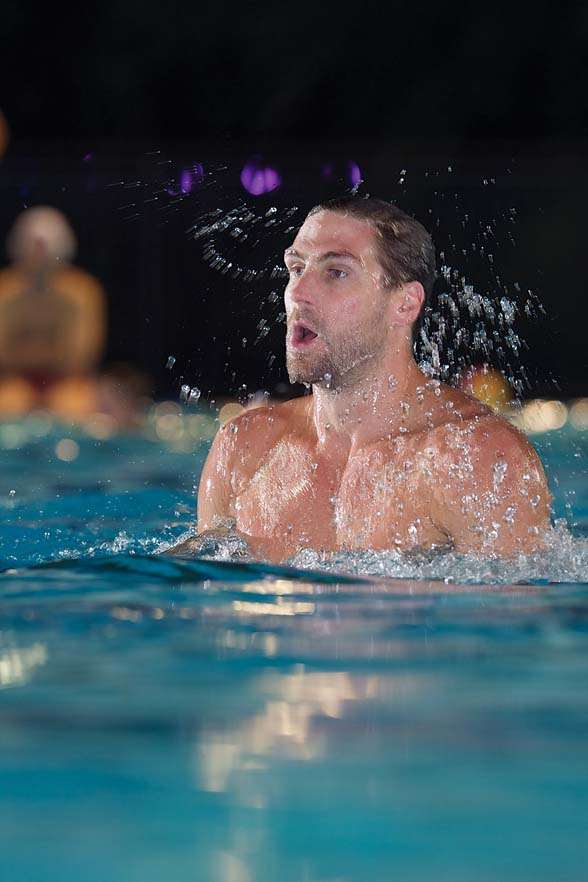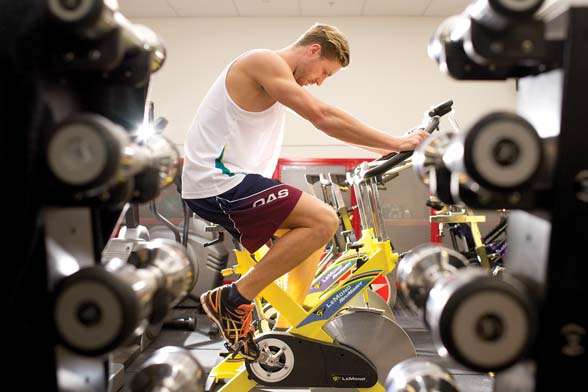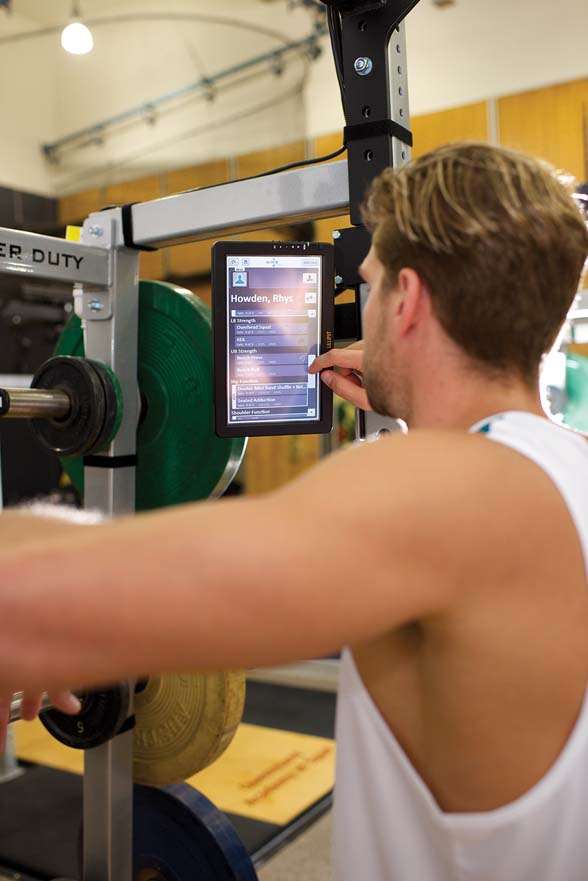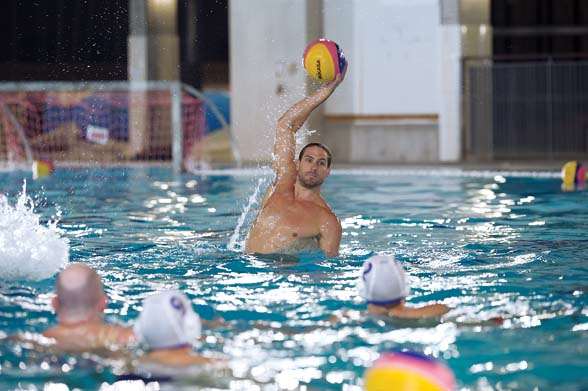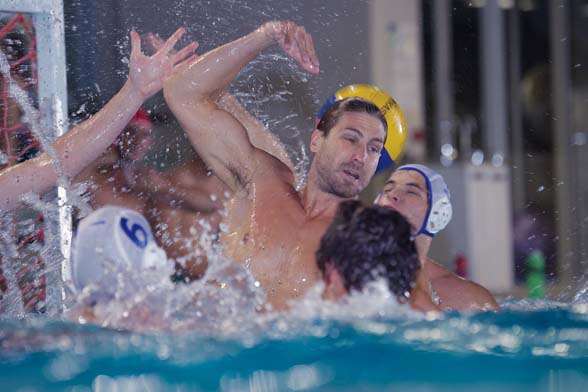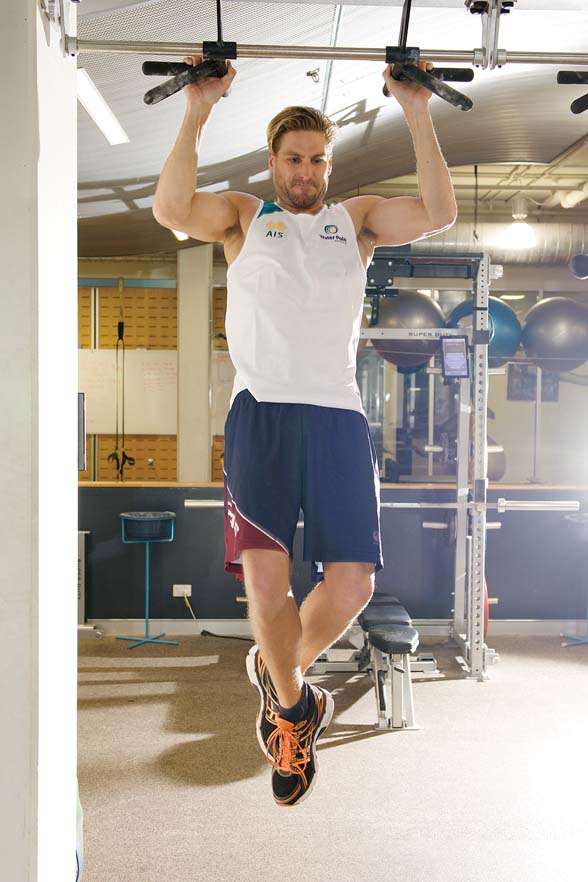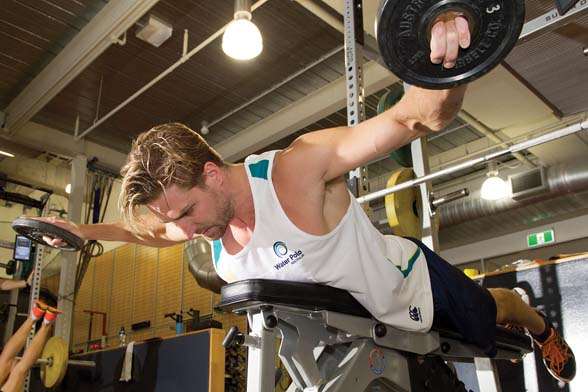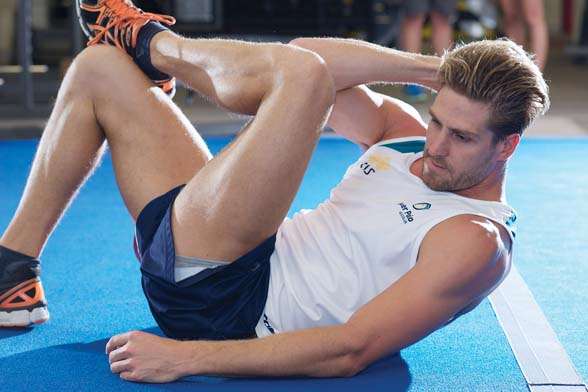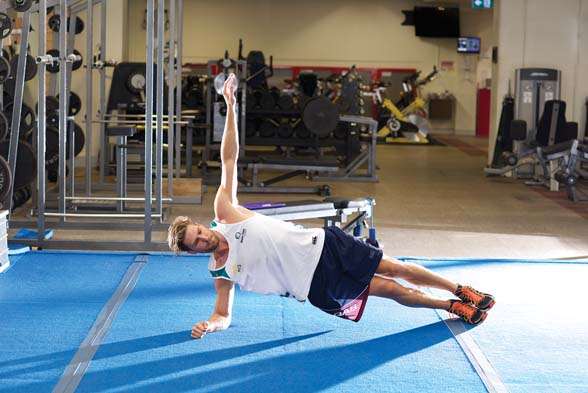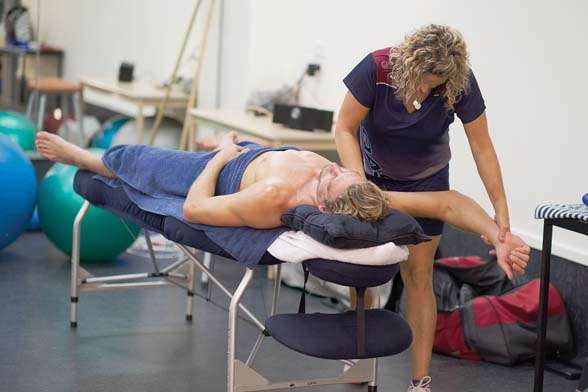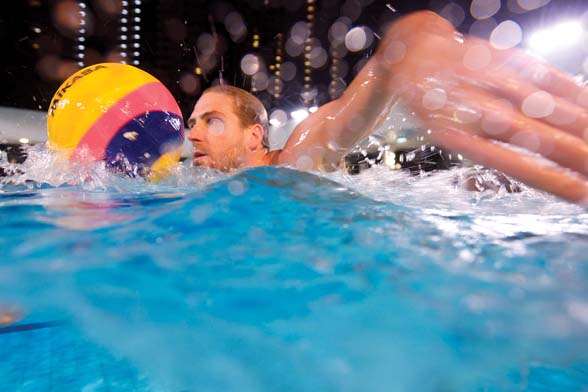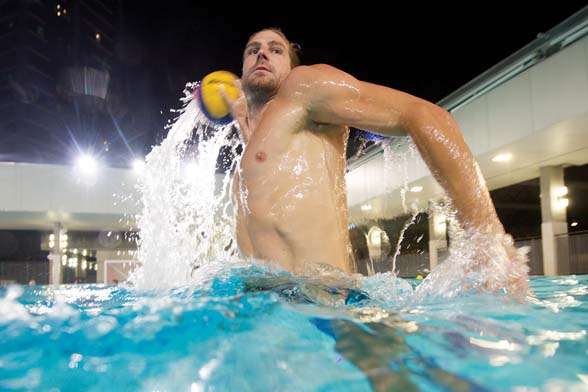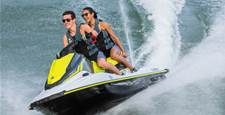But please, no more questions about how the players get their horses into the water.
With the Rio Olympics around the corner, our national men’s water polo team has hit top form at the right time. Witness the Sharks’ performance at the recent FINA World League Intercontinental Tournament in California, where they not only knocked off fellow top-15 sides Japan, the USA and China, but they won the whole damn event by beating hotshots Brazil in the final to finish as the only undefeated nation. The Sharks’ achievements there meant they automatically qualified for the World League Super Final, scheduled for Bermago in Italy in late June. That will be followed by their World Championships appearance in Russia in August ... Busy boys! A major component of our gents’ recent success has been the team’s “driver” and captain, Brisbane-based Rhys Howden. The 28-year-old already has more than 150 caps for his country. He boasts an impeccable water polo pedigree, with Dad Phil captaining the Poms between 1978-81; his brother BJ was a former team-mate of Rhys’ until his career ended prematurely thanks to a fourth hip operation by the age of just 24. Such is the water polo life: it’s a sometimes brutal, always physically demanding sport at the top level. A lot goes on beneath the surface of the pool; similarly, water polo players generally exist in a submarine, largely sponsor-free world, surfacing into public consciousness when Olympic medals are at stake ... Here, Howden shares with us what it takes to stay at the top of his game in the sport he loves.
MAKING A SPLASH
“I started playing when I was 12 or 13. Dad came out here on a water polo trip to play for a universities rep team. He also played for Tugan that season and loved it and stayed for a while, eventually moving here permanently with Mum. My sister, brother and myself were all born in Australia and grew up here. When I was young, five or six, I really enjoyed my rugby union but Dad, being heavily involved in the sport, kick-started my water polo career; I suppose it was a natural progression that my sister, brother and I started playing. My brother and I used to jump into the pool after Tugan’s games and throw the ball at each other. A few of the club members would see our natural talent and told Dad to sign us up for the following year: ‘Get them in the water for a game! Why aren’t they playing?’ We did sign up the next season and away we went. That first year I played, I actually hated it! It was cold, there was too much swimming and you were drowning half the time ... But according to Mum and Dad, I always had a ball in my hand as a kid; whether it was a soccer ball, a rugby ball or tennis ball, it didn’t matter. I played water polo for the Brisbane Barracudas as a junior, from the 13s-18s and had Dad as a mentor and coach. When I was 17, at a state championships in Melbourne, officials were selecting eight or so athletes to go down to the Australian Institute of Sport for two years on a scholarship. I was lucky enough to get selected, so I packed my bags, left Mum and Dad and lived in Canberra with about 14 other guys from around Australia.”
CALENDER YEAR
“My calendar year is kind’ve divided into playing local, state and international-level water polo. My club season with the Brisbane Barracudas in the Australian national league runs from January to May. From May to August-September, we’re trying to get as much Australian squad training time in as we can. Although, if we happen to be getting back from a major championship, we might have a few weeks off. September back through to January is when the states run their separate comps; pretty full-on and all-year-round. Water polo players in Australia don’t get paid. Some boys, myself included, have been overseas and have played professionally; in 2009 I played for a Spanish team out of Barcelona. It is an elite sport supported by the AIS, Water Polo Australia and our state institutes, but it’s also an amateur sport as well. A full-time hobby is probably the best way of putting it. The Aussie players are either studying or are working full-time on top of training. I maintain indoor tropical plants for businesses around Brisbane. Being my own boss, I work my own hours and make sure I can fit in all my training.”
WEEK BY WEEK
“My weekly prep is usually two sessions a day, about two hours each. At the moment I’m training with the Queensland Academy of Sport team for certain sessions and then with our club team for other sessions. For most of the year though it’s Monday morning gym with an afternoon water polo session. Tuesday morning is a pure swim session followed by a water polo session at night. Wednesday, another morning gym and a water polo session at night. Thursday, a morning swim set and a night water polo session. Friday, morning gym and night polo. On Saturday we usually try and make a game of it, just to have a bit of fun at the end of the week. And then a rest day on Sunday.”
PERSONAL STRENGTHS
“I am what is called a ‘driver’. Basically, I play on the left-handers’ side of the pool. Skill-wise, as a right-hander, being on that side of the pool, it’s very difficult; you have to catch the ball across your body. As a driver, my strength would be my agility; I’m not one of the biggest guys in the pool, but in my position I’ve got to use my agility and speed to get around the bigger guys in defence and in attack.”
FREQUENTLY ASKED …
“A question water polo players get asked is: ‘How do you get the horses into the pool?’ I have actually been asked that a couple of times. I tell people that water polo is basically Brazilian jiu-jitsu, rugby, wrestling ... in the water.” Another thing we get asked is: how far do you swim in a game? For a player in my position, on average it would be around four to six kilometres. There is a lot of grabbing, punching, kneeing, elbowing, kicking ... but what happens in the water stays in the water. Occasionally you might get into a scuffle, punches are thrown, stuff like that. You get out, and you’re best mates afterwards ... sometimes. It’s never personal. It’s sport. You can get into a bit of trouble for doing those sorts of things, but if the ref doesn’t see it, fair game.”
IN THE GYM
“Monday, Wednesday and Friday mornings are my gym mornings, which focus on power, cardio and flexibility. Obviously there is a bigger concentration on power; two key areas are good, strong legs and upper body strength for wrestling. For power I’ll do a lot of squats, bench press, bench pulls, a lot of back exercises as well. That is pretty important, especially with the swimming demands of water polo. Other key exercises I might do include Olympic lifts, power cleans, hang cleans, split jerks. In between there are a lot of med-ball throws on the wall, push-ups, chin-ups at a high intensity ... It’s always up to our strength and conditioning coach David Watts. He works for the Queensland Academy of Sport and has a two-monthly program for us to follow. He’ll mix it up, throw something else in there every now and then just to keep it from turning boring. When we are with the Australian team our conditioning guy is a Croatian named Dejan and he is brutal!”
ON YOUR BIKE
“As far as cardio goes, in the gym we’ll either do a bit of a run or bike for ten or 20 minutes. Usually the whole team will jump on the bike before a session, or during, and just spin the legs over, probably more for a warm-up than an actual cardio session. If we’re coming off a playing break, gym cardio is good for any players who have put on weight during the off-season.”
GOING SWIMMINGLY
“Tuesday and Thursday mornings are normally just pure swimming sessions. This involves swimming anywhere between three and six kilometres. We won’t get the water polo balls out, nothing; just a straight-up swim set ... as if you’re a swimmer. In the off-season you try and smash out as many kilometres as you can, just to get that base fitness up. In-season, you don’t want to be doing too many kays, so you start getting into sprints – getting the volume up. You never like swim sessions, but they’re an important part of your water polo training. You need to be fit. You can’t just rock up and expect to be able to play the sport at a high level [or even at a social level, for that matter] if you don’t have that ground work behind you. Following the black line up and down isn’t very amusing for us though ... I don’t know how actual swimmers do it.”
THE EGGBEATER
“The kicking technique water polo players use to stay upright in the water is called the ‘eggbeater’. It’s like a breaststroke kick, but one leg at a time, if that makes sense ... Like riding a bike, but in a breaststroke-style. It’s a little bit odd. If you’ve never done it before it’s pretty challenging. Usually people start by using a freestyle or breaststroke kick ... it’s not a very natural position for the body. Once you pick it up, it becomes second nature. In water polo, the eggbeater is probably the first skill you learn ... and master.”
TIME TO EAT
“For me, it’s not really what I eat, but when I eat it that affects me the most. If I eat too close to a game or heavy training, my food will just sort’ve sit there and come back up, which can be annoying. I try and eat a relatively solid meal four hours before a game. If I get hungry just prior to a match, I’ll have a muesli bar or a banana, something small to keep me going. During the game I have lots of water and Gatorade at the ready ... even those little electrolyte gels for quarter-time and half-time. I haven’t used supplements too much. More so when I’m with the Australian team, I’ve found you do fatigue a lot quicker than, say, in the local comp – the water polo is always at a higher intensity. Before and after games when we’re in the Australian camp, I like to get in a bit of protein by having Musashi shakes or Sustagen.”
AUSTRALIAN STORY
“After the last Olympics the Sharks had seven-eight guys retire; recently we’ve seen a young, new batch of players coming in. We have a new coach too, Elvis Fatovic, a European mentor who knows his stuff. He was the assistant coach of Croatia, who won the gold at London. Having him on board has been phenomenal. He’s teaching us a lot of good things. We’re striving to be the first Australian men’s water polo team to win an Olympic medal. Hopefully we can keep putting these good results on the board. Our showing at the recent Intercontinental tournament was the first FINA gold medal Australia has ever won in men’s competition. It was a great achievement for the team. We can’t get too carried away though. We have a big year ahead and a bigger year next year. Everyone is on the same page and looking forward to it.”
Related Articles
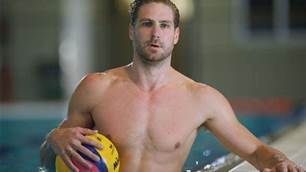
How to train like Aussie water polo captain Rhys Howden
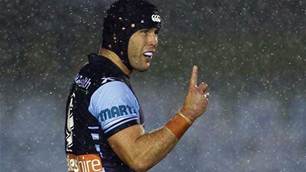
Training with the Cronulla Sharks' Michael Ennis


